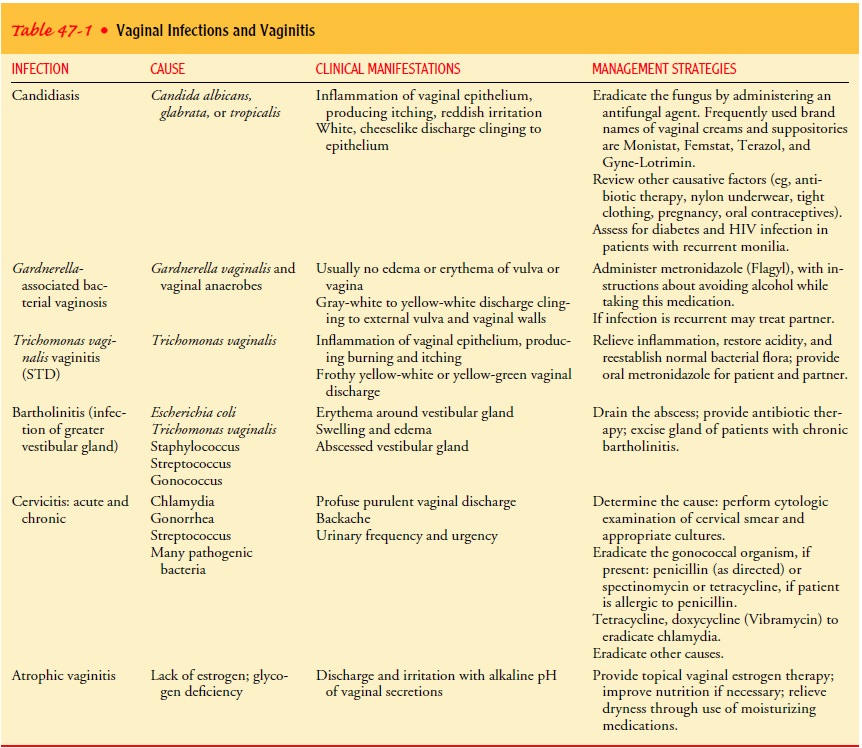Chapter: Medical Surgical Nursing: Management of Patients With Female Reproductive Disorders
Trichomoniasis - Vulvovaginal Infections
TRICHOMONIASIS
Trichomonas vaginalis is a flagellated protozoan that causes a
com-mon, usually sexually transmitted vaginitis that is often called “trich.”
About 5 million cases occur each year in the United States (U.S. Surgeon
General’s Report, 2001). It may be trans-mitted by an asymptomatic carrier who
harbors the organism in the urogenital tract (see Table 47-1). It may increase
the risk of contracting HIV from an infected partner.

Clinical Manifestations
Clinical
manifestations include a vaginal discharge that is thin (sometimes frothy), yellow
to yellow-green, malodorous, and very irritating. An accompanying vulvitis may
result, with vulvo-vaginal burning and itching. Diagnosis is made by
microscopic detection of the pear-shaped, mobile, flagellate organisms.
In-spection with a speculum often reveals vaginal and cervical ery-thema
(redness) with multiple small petechiae (“strawberry spots”). pH testing of a
trichomonal discharge will demonstrate a pH greater than 4.5.
Medical Management
The
most effective treatment for trichomoniasis is metronidazole (Flagyl). Both
partners receive a one-time loading dose or a smaller dose three times a day
for 1 week. The one-time dose is more con-venient; consequently, compliance
tends to be greater. The week-long treatment has occasionally been noted to be
more effective. Some patients complain of an unpleasant but transient metallic
taste when taking metronidazole. Nausea and vomiting, as well as a hot, flushed
feeling, occur when this medication is taken with an alcoholic beverage
(disulfiram-like reaction). In view of these side effects, the patient is
strongly advised to abstain from alco-hol while taking the medication.
Metronidazole
therapy is contraindicated in patients with some blood dyscrasias or central
nervous system diseases, in the first trimester of pregnancy, and in women who
are breastfeed-ing. It is not prescribed without examination.
Gerontologic Considerations
After
menopause, the vaginal mucosa becomes thinner and may atrophy. This condition
can be complicated by infection from pyogenic bacteria, resulting in atrophic
vaginitis (see Table 47-1). Leukorrhea (vaginal discharge) may cause itching
and burning. Management is similar to that for bacterial vaginosis if bacteria
are present. Estrogenic hormones, either taken orally or inserted into the
vagina in a cream form, can also be effective in restoring the epithelium.
Related Topics